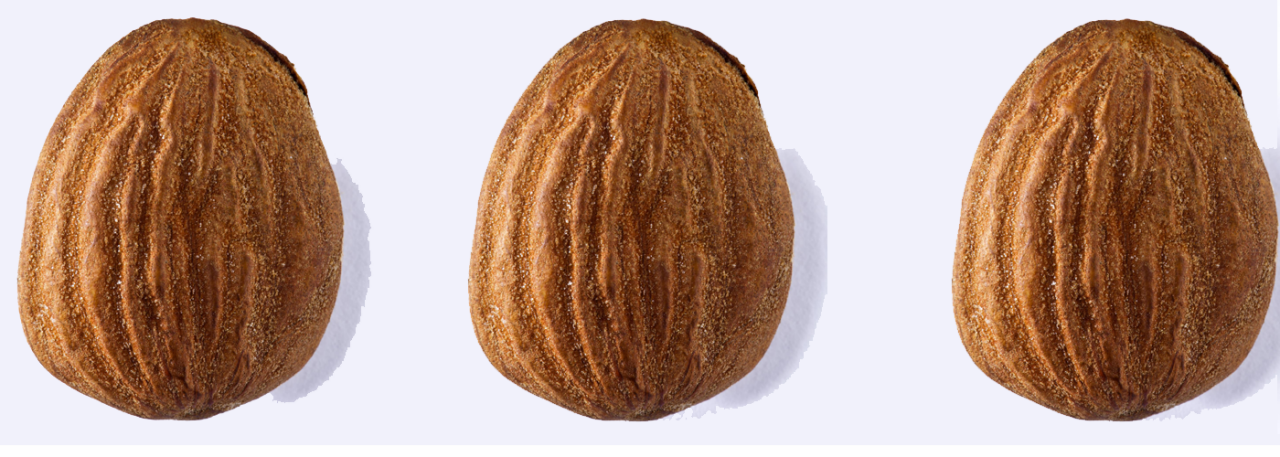.png.transform/rendition-xs/image_image%20(1).png)
Marcona almonds
The almond is the fruit of the almond tree, Prunus amygdalus Basch. It is a drupe fruit with a hard endocarp. The seed is the almond product that is consumed. It has two surrounding teguments that change from green to light brown during ripening.
The Marcona variety is a rounded fruit with a hard shell, more flattened in shape, between 0.39 in and 0.51 in / 10 mm and 13 mm long. Botanically it is a pure native Spanish variety, as it has no grafts from others. Its origins are unknown, but it is probably from Alicante. It is considered to be of high quality and hence is used for making nougat.
Tasting notes
Sweet, delicate flavor.
Other notes
The fruit is white in color. It is very rounded with a smooth white appearance.
Production / Processing method
It is a very rustic plant that adapts well to different soil types, and can be found growing equally well in soils of granite or slate origin and in those of limestone and chalk. It also adapts to different systems of cultivation, reacting well to fertilizer, irrigation, pruning, etc. Almond production in Spain is distributed in plantations, mostly small in size and not irrigated, some of which are located in mountainous areas throughout the Mediterranean basin. While the almond tree is much more productive on large, irrigated plantations, Spanish almonds are of exceptional quality due to their higher oil content, which makes them soft and juicy, with a more intense flavor.
Geography / Relief and climate
The main areas of production have a markedly Mediterranean climate, coastal or inland, with relatively low rainfall, mild temperatures on the coast and somewhat more extreme temperatures inland.
Spanish almonds are of exceptional quality due to their higher oil content, which makes them soft and juicy, with a more intense flavor.

